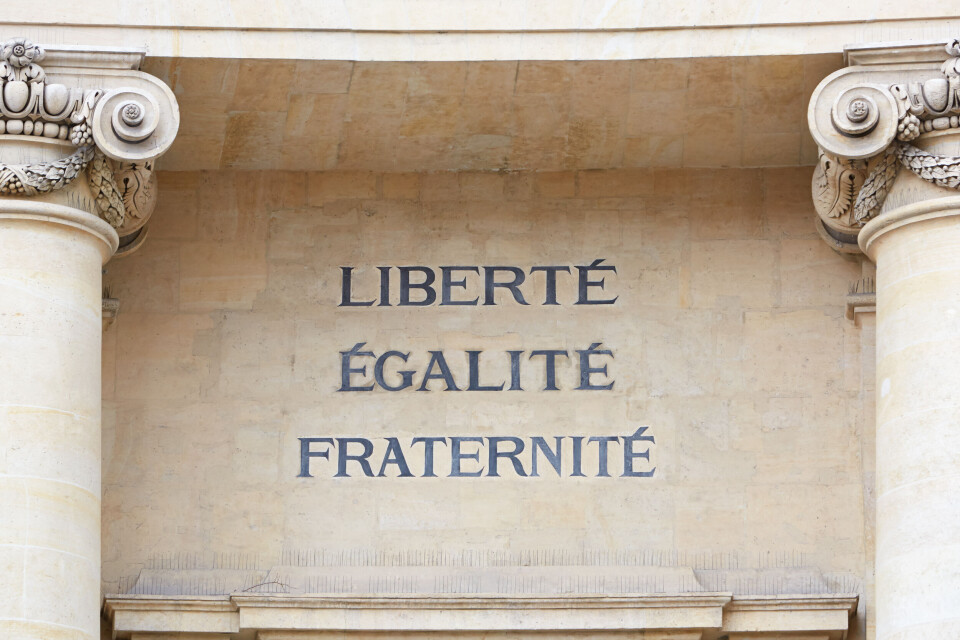-
More French podcasts to test your language skills
Podcasts are one of the best free tools for consistently developing your listening comprehension
-
Rugby vocabulary to know if watching the Six Nations in France
From un tampon to une cathédrale, understand the meaning of key French rugby terms
-
Learning French: what does faire grise mine mean and when should it be used?
A phrase to use when someone is down in the dumps
What is the origin of France’s motto ‘Liberté, Égalité, Fraternité’?
We look at the history of this phrase and the extent to which it is linked to the French Revolution

Reader question: Why is ‘liberté, galité, fraternité’ associated with France, and why do so many buildings have these words on them?
Liberté! Égalité! Fraternité – anyone who has spent time in France, or is interested in French history, will know these words are closely tied to the national identity of the country itself.
They are emblazoned above every government institution, every school, and on many souvenirs, as synonymous with France as the tricolore.
The phrase invokes a rebellious and republican spirit, of barricades and Phrygian caps, that to this day French people see as values that should guide public institutions in France.
Because of the imagery associated with the phrase, many would assume its origin and adoption to come from the French Revolution, however, this is only partially correct.
Although most strongly associated with the Revolution, the ideas themselves predate 1789 and had begun to ferment during the Enlightenment period, with philosophers such as Englishman John Locke and France’s Jean-Jacques Rousseau.
Revolutionary origins
The first recorded use of the slogan in the format we know today, however, comes from the famous French revolutionary Maximillian Robespierre, in December 1790.
He proposed in a speech that the three words be written on soldiers’ uniforms and national flags, and although nothing came from this, the slogan itself gained public attention.
A number of theories attribute the exact origin of the slogan to before Robespierre’s speech – including to fellow revolutionary Camille Desmoulins – but there is no overall agreement.
In 1793, some Parisians – and soon people from all over France – painted an expanded slogan of Unité, indivisibilité de la République; liberté égalité fraternité ou la mort ! (Unity, the indivisibility of the Republic; liberty, equality, brotherhood or death!) across houses and walls.
The phrase itself was not the only Revolutionary motto used during the era and was one of a number of slogans used across the political spectrum at the time.
With the end of the Revolution, the slogan fell out of use, and it was removed by Emperor Napoleon.
Read more: Five French civil wars - from Charlemagne to the Paris Commune
Official usage
Kept alive by underground societies, after the 1848 revolution the slogan was officially adopted by the Second Republic to be the country’s motto, although this was short-lived; within a few years, Napoléon III ordered its removal from all official documents and buildings.
The Paris Commune revitalised the slogan, again plastering Paris’s walls with the phrase (although again adding ou la mort !) and the Third Republic again officially adopted it.
The slogan was briefly replaced during the Second World War, with Vichy France replacing it with travail, famille, patrie (work, family, fatherland).
After the war, both the Fourth and Fifth Republics enshrined the motto in their constitutions, keeping the association with France up to this day.
Today, it retains its place as an intangible part of French culture, and any French person will be happy to discuss what the words mean to them.
Related articles
When naming places and streets, France should honour women too
Medieval murder and turbulent history of Burgundy’s Semur-en-Auxois
























